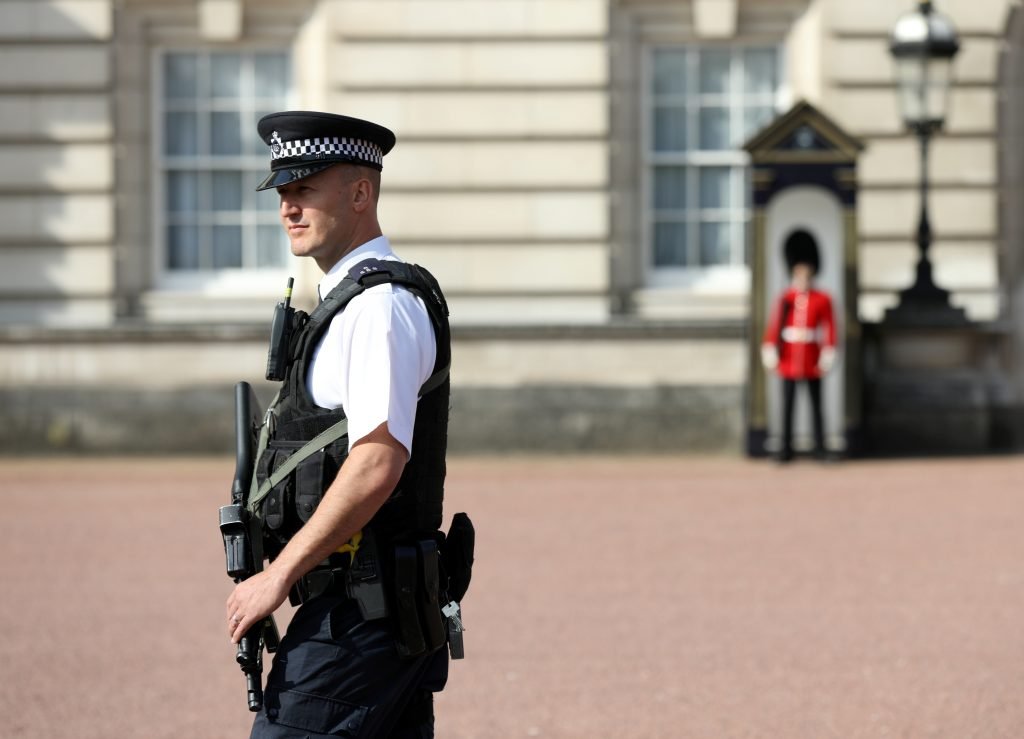Become a police officer if you’re thinking about a career in law enforcement. Being a law enforcement official may be a highly fulfilling career since it empowers you to protect the people in your town. You can determine if being a law enforcement official is the best career choice for you by learning more about the benefits of the field.
This article covers the reasons for becoming a police officer, the tasks of a police officer, and advice for those who choose to pursue this career. By recovering overpayment taxes for employment-related expenses, cops can increase their annual savings and receive financial relief by claiming a police tax rebate.
Salary For A Police Officer
For new constables, the starting wage as a police officer is £29,907. Subject to a basic performance assessment, employees can make up to £48,231 over seven years. You should anticipate a raise in your police officer wage as you advance through the levels, as shown below.
- £51,408 – £53,943 for sergeants
- Examiners: £61,197–£66,207
- Senior Examiners: £67,509–£70,200
- Administrator £80,784 – £95,025
- Chief Inspector: £99,612–£111,117
Change Your Work And Work-Life Balance
You will have a combination of work and leisure time during the workday and on the weekends with your shift arrangement. Because law enforcement must be conducted around the clock, cops work a mix of early, late, and night shifts.
For a variety of positions and possibilities, Greater Manchester Police provides flexible working, flextime, part-time possibilities, and career breaks. You can talk about these with the local SLT and supervisors in charge.
Experts advise candidates to be upfront and forthcoming with their friends and family concerning any requirements for assistance they may have, as well as realistic concerning their ability to adjust to shift work.
Yearly Vacation
Included in your yearly leave is:
- Each year, you will have the possibility of earning up to 30 days if you work here.
- Your shift schedule includes public holidays including rest days in addition to leave for maternity, paternity, and adoption leave.
- Paid and unpaid military reservists’ vacation, special leave, paid and unpaid career leave, as well as unscheduled career breaks lasting up to five years.
Hefty Pension Contribution
You will be enrolled in the 2015 New Police Pension Scheme automatically. This pension plan, called CARE (Career Average Revalued Earnings), is based on one’s professional earnings and provides an irrevocable annuity with an optional lump payout.
Diverse Work Responsibilities
A police officer works on a very varied set of jobs every day. They might work one shift writing tickets for moving infractions like speeding or disregarding traffic signs, as well as another shift handling car accidents. In addition, a police officer might be in charge of attending to a crime scene, obtaining information, and conducting interviews with different individuals.
Friendship Among Coworkers
In addition to the community, a police officer has obligations to their fellow officers. When possible, they encourage and assist one another when they investigate investigations together. They build strong professional bonds with each other to increase productivity and ensure their safety while working. Friendship among coworkers can create a positive and supportive work environment.
When colleagues build strong bonds, they foster trust, collaboration, and open communication. This connection not only boosts morale but also enhances productivity and job satisfaction, making work more enjoyable and less stressful.
Specializations In Policing And Career Development
We place a great deal of importance on developing ourselves and learning. Experts provide:
- Continuous instruction via classes, coaching, and mentorship
- Opportunities for advancement and growth into other police specializations, as well as an emphasis on your ongoing professional development through performance reviews
The Met, the biggest police force in the UK, provides a unique range of professional growth opportunities and professions. This comprises:
- Patrolling the River Thames on land and below it
- Local policing
- Big events and demonstrations
- Carrying a handgun
- Specialized and important examinations,
- Including homicide sometimes a major crime
- Dog handlers
- Sometimes mounted officers
- Combating terrorism
Chances To Apply Your Problem-Solving Abilities
Problem-solving is one of the primary duties of a police officer. To protect civilians and themselves, they are fast to think and take action. A lot of people who aspire to be police officers find satisfaction in the challenge of using the evidence they gather to solve crimes. To connect the dots in a case, for instance, a police officer might utilize witness testimony and body camera evidence.
Chances to apply your problem-solving abilities come in various forms, from everyday challenges to complex professional tasks. Whether it’s finding creative solutions at work, resolving conflicts, or overcoming personal obstacles, each situation offers an opportunity to sharpen critical thinking and develop innovative approaches. Embracing these moments not only enhances your skills but also builds confidence in tackling future challenges with greater ease.
Final Words
Before a police officer may begin serving in the legal system, their employer might make them complete a battery of examinations. A written assessment of fundamental skills evaluates an applicant’s ability to solve problems, comprehend what they read, and solve problems. It’s conceivable that an employer will also want a fitness exam. The majority of fitness evaluations given to prospective police officers consist of sprints, pushups, situps, plus endurance runs.
Visit searchsnets to read more informative articles.


